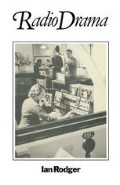Abstract
On 13 December 1901 Marconi transmitted the letter S in Morse Code by radio from Poldhu Cove, Cornwall, to St John’s, Newfoundland. His invention was very swiftly adapted to serve the needs of civil and military communication and, within twenty-five years, it was being used throughout the world to broadcast public entertainment and information. The development of public broadcasting has stimulated much study of its social and political consequences but very much less critical attention has been paid to its artistic content. It has not been very widely appreciated that radio required the adaptation of existing literary and dramatic forms of expression and that this requirement stimulated experiments which have subsequently had considerable influence upon recent and contemporary writing, in both the new forms of expression and the traditional literary and dramatic forms. The lack of serious attention so far paid to the artistic contribution which radio has inspired is perhaps understandable. Because its aesthetic exploitation has varied considerably from country to country, the interest of serious literary and drama critics has been deflected and seems to have encouraged the belief that radio can only be regarded as a sociological phenomenon.
Preview
Unable to display preview. Download preview PDF.
Copyright information
© 1982 Ian Rodger
About this chapter
Cite this chapter
Rodger, I. (1982). National Responses to Radio. In: Radio Drama. Palgrave, London. https://doi.org/10.1007/978-1-349-16647-3_1
Download citation
DOI: https://doi.org/10.1007/978-1-349-16647-3_1
Publisher Name: Palgrave, London
Print ISBN: 978-0-333-29429-1
Online ISBN: 978-1-349-16647-3
eBook Packages: Palgrave Literature & Performing Arts CollectionLiterature, Cultural and Media Studies (R0)

